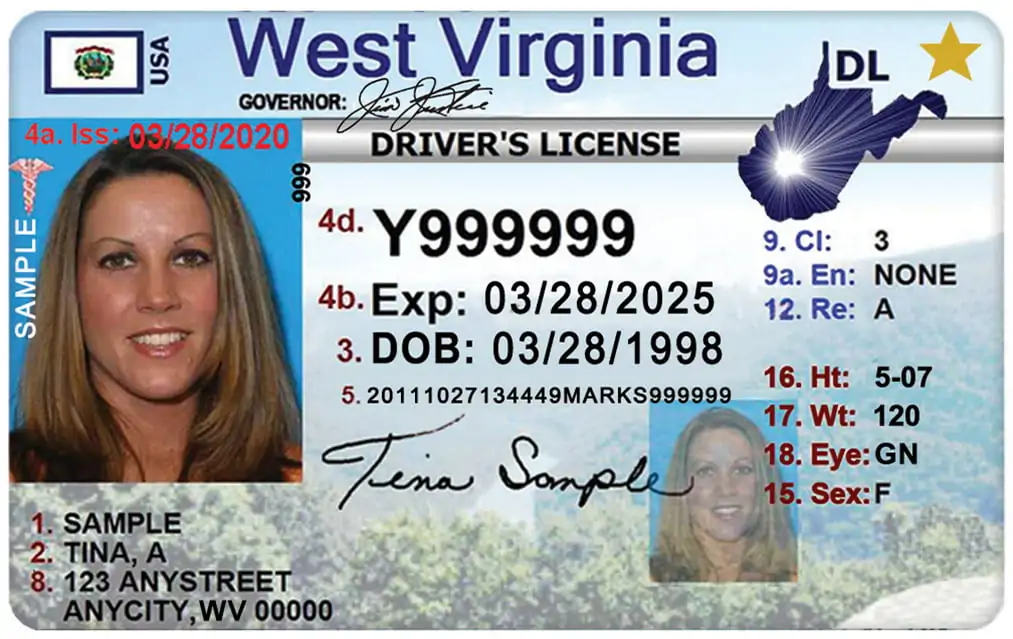West Virginia
ID Scanning Laws
West Virginia law regulates a business’s ability to scan IDs primarily in the context of selling restricted goods. Outside of this, there is no law generally governing a business’s ability to scan IDs. There are some instances where merchants are required to record information related to identity, such as the sale of controlled substances. In these scenarios, ID scanning can improve the ease and accuracy of record keeping.




West Virginia State Legislature
ID Scanning Resources
The Legal Framework
West Virginia ID Scanning Laws and Regulations
In the absence of any statute expressly regulating a business’s ability to scan IDs and to retain information obtained from a scan in general, subject to applicable privacy laws, businesses are likely allowed to scan IDs and to retain information obtained from scans.
In the context of selling “alcoholic beverages, wine, and non-intoxicating beer,” West Virginia law provides that no scanner can be used to collect personal information from a driver’s license of any purchaser, including driver’s license number, social security number, or other descriptive information, other than the age.
Affirmative Defense for ID Scanning in West Virginia
West Virginia offers an affirmative defense for ID scanning. According to West Virginia Code Section 60-2-22, the Alcohol Beverage Control Commissioner may authorize and establish standards for the use of scanner technology for the verification of age of purchasers of alcoholic beverages and wine.
The law also states that any scanner technology may not be used for the collection of personal identifiable information of any purchaser, which includes, but is not limited to, drivers license number, social security number or other descriptive information contained on the license, other than the age of the purchaser.
Mandatory Verification of Age for Alcohol Sales
West Virginia Statute §60-3A-25a mandates the verification of age for persons purchasing alcohol. A licensee who has installed a transaction scan device in its licensed premises and can demonstrate that it requires each employee, servant, or agent to verify the age of any individual to whom liquor is sold, furnished, or given away by the use of the transaction device may not be subject to any criminal penalties, administrative penalties from the commissioner, or any civil liability for the improper sale, furnishing or giving away of liquor to an individual who is less than twenty-one years of age by one of his or her employees, servants or agents.
ID Scanning for Controlled Substances
According to West Virginia Code. §60A-9-4a, prior to releasing a Schedule II, III, or IV controlled substance sold at retail, a pharmacist or pharmacy shall verify the full legal name, address, and birth date of the person picking up the controlled substance dispensed by requiring the presentation of a valid government-issued photo identification card.
Please note that this information is intended to provide a general overview and does not constitute legal advice. Always consult with a legal professional for advice specific to your situation
West Virginia Anti-Trafficking Network
Our Fight Against Human Trafficking



Knowledge Base
Frequently Asked Questions
Yes, businesses in West Virginia can scan IDs, primarily in the context of selling restricted goods. However, the scanner cannot be used to collect personal information from a driver’s license, other than the age of the purchaser.
Yes, West Virginia offers an affirmative defense for ID scanning, particularly in the context of verifying the age of purchasers of alcoholic beverages and wine.
Yes, it is mandatory to verify the age of any individual to whom liquor is sold, furnished, or given away.
The scanner cannot be used to collect personal identifiable information of any purchaser, which includes, but is not limited to, drivers license number, social security number or other descriptive information contained on the license, other than the age of the purchaser.
Yes, a pharmacist or pharmacy must verify the full legal name, address, and birth date of the person picking up the controlled substance dispensed by requiring the presentation of a valid government-issued photo identification card.
Yes, hotels in West Virginia can scan IDs, particularly in the context of selling restricted goods such as alcohol. However, the scanner cannot be used to collect personal information from a driver’s license, other than the age of the purchaser.
